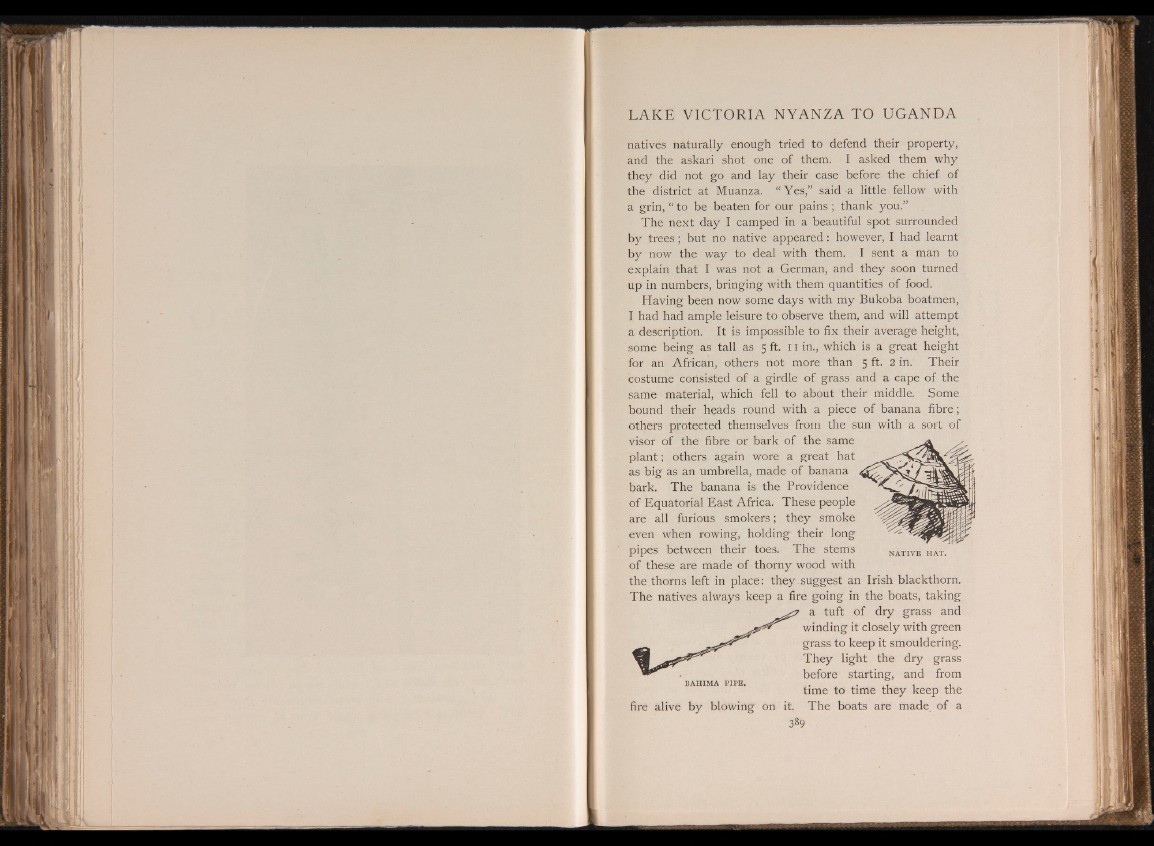
1 1 1
1M1 i Mttf I
I lit.*
|B|
f r
I
K i ln
I l f
i f
I
■ I f f
»i ■1
#|
J
I
H WI I “1
IIM uInL u r
L A K E V IC TO R IA N Y A N Z A TO U G A N D A
natives naturally enough tried to defend their property,
and the askari shot one of them. I asked them why
they did not go and lay their case before the chief of
the district at Muanza. “ Yes,” said a little fellow with
a grin, 0 to be beaten for our pains; thank you.”
The next day I camped in a beautiful spot surrounded
by trees; but no native appeared: however, I had learnt
by now the way to deal with them. I sent a man to
explain that I was not a German, and they soon turned
up in numbers, bringing with them quantities of food.
Having been now some days with my Bukoba boatmen,
I had had ample leisure to observe them, and will attempt
a description. It is impossible to fix their average height,
some being as tall as 5 ft. 11 in., which is a great height
for an African, others not more than 5 ft. 2 in. Their
costume consisted of a girdle of grass and a cape of the
same material, which fell to about their middle. Some
bound their heads round with a piece of banana fibre;
others protected themselves from the sun with a sort of
visor of the fibre or bark of the same
plant; others again wore a great hat
as big as an umbrella, made of banana
bark. The banana is the Providence
of Equatorial East Africa. These people
are all furious smokers; they smoke
even when rowing, holding their long
pipes between their toes. The stems n a t i v e h a t .
of these are made of thorny wood with
the thorns left in place: they suggest an Irish blackthorn.
The natives always keep a fire going in the boats, taking
a tuft of dry grass and
winding it closely with green
grass to keep it smouldering.
They light the dry grass
before starting, and from
BAHIMA P IPE . . - i l l time to time they keep the
fire alive by blowing on it. The boats are made of a